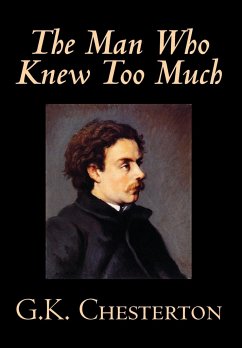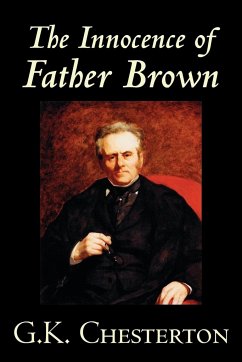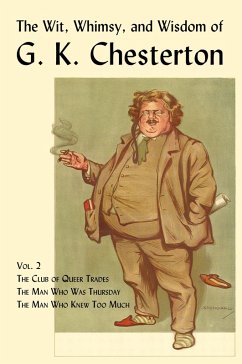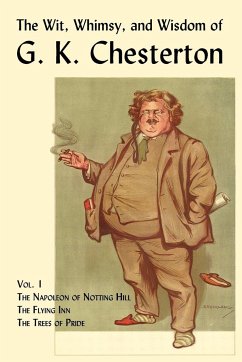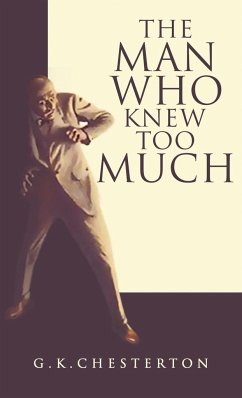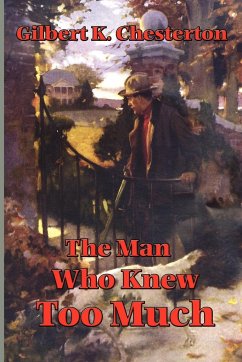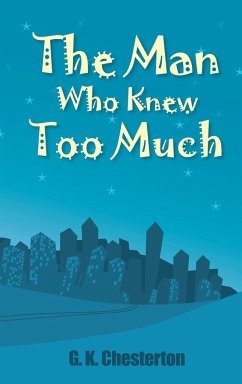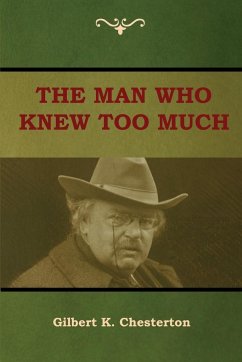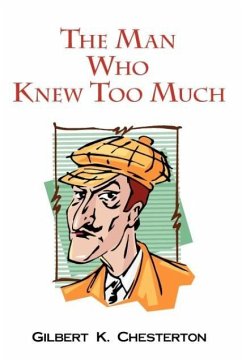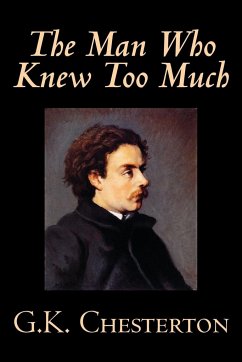
The Man Who Knew Too Much by G. K. Chesterton, Fiction, Mystery & Detective
Versandkostenfrei!
Versandfertig in 1-2 Wochen
14,99 €
inkl. MwSt.

PAYBACK Punkte
7 °P sammeln!
The Man Who Knew Too Much: From behind the overhanging rock came a noise and rush like that of a railway train; and a great motorcar appeared. For the fraction of a flash it seemed to leave the ledge of rock like a flying ship; then the very sky seemed to turn over like a wheel, and it lay a ruin amid the tall grasses below. A little lower the figure of a man with gray hair lay tumbled down the steep green slope, his limbs lying all at random, and his face turned away. He was unquestionably dead. The blood flowed in the grass from a hopelessly fatal fracture at the back of the skull; but the f...
The Man Who Knew Too Much: From behind the overhanging rock came a noise and rush like that of a railway train; and a great motorcar appeared. For the fraction of a flash it seemed to leave the ledge of rock like a flying ship; then the very sky seemed to turn over like a wheel, and it lay a ruin amid the tall grasses below. A little lower the figure of a man with gray hair lay tumbled down the steep green slope, his limbs lying all at random, and his face turned away. He was unquestionably dead. The blood flowed in the grass from a hopelessly fatal fracture at the back of the skull; but the face, which was turned to the sun, was uninjured and strangely arresting in itself. It was one of those cases of a strange face so unmistakable as to feel familiar. . . .





